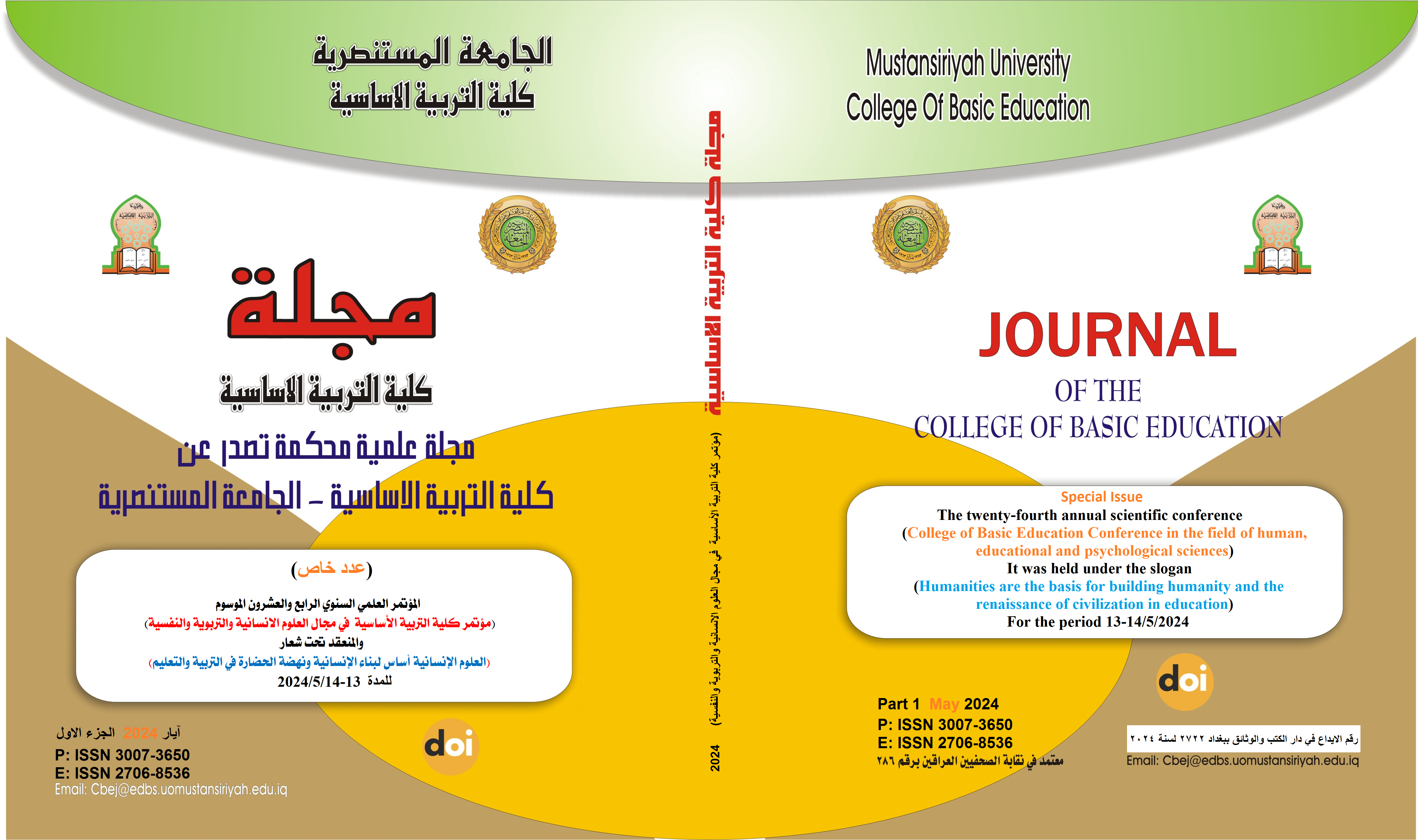A Sociolinguistic Study of Regional Variation and Language Identity in Iraqi’s Dialects: AL- Anbar, Al Basra and Al Mosul in Iraq
Main Article Content
Abstract
The research paper discusses a sociolinguistic study exploring regional diversity and language identity in three Iraqi dialects: Al-Anbar, Al-Basra, and Al Mosul. The varieties of dialect within one country are essential studies from a sociolinguistic point of view. The study seeks to investigate the sociolinguistic factors influencing linguistic variety in Iraq and examine the impact of regional dialects on language identification. Data was gathered from speakers of Al-Anbar, Al Mosul, and Al-Basra dialects by following the snowball sample. The study follows a mixture of qualitative and quantitative research methods, including interviews and questionnaires. The study examined the varieties of Arabic Iraqi dialect and how speakers perceive language identity concerning on their attitudes towards regional variety. It explores how sociolinguistic characteristics, including regional, age, gender, education, and social class, influence dialect use. The researcher adopts the theory of Labov Language Variation and Change (1968) to analyze the variation in the dialects in this study. As a result, the study finds that the Iraqi dialect consists of different dialects inside Iraq, some of them differ from the phonological change, lexical meaning or semantic meaning, which provide various ways of using and functioning the language, but all share the same classical dialect. The findings of the study enhance sociolinguistics and dialect studies, impacting language planning, educational policies, and language revitalization initiatives.
Article Details

This work is licensed under a Creative Commons Attribution-ShareAlike 4.0 International License.
